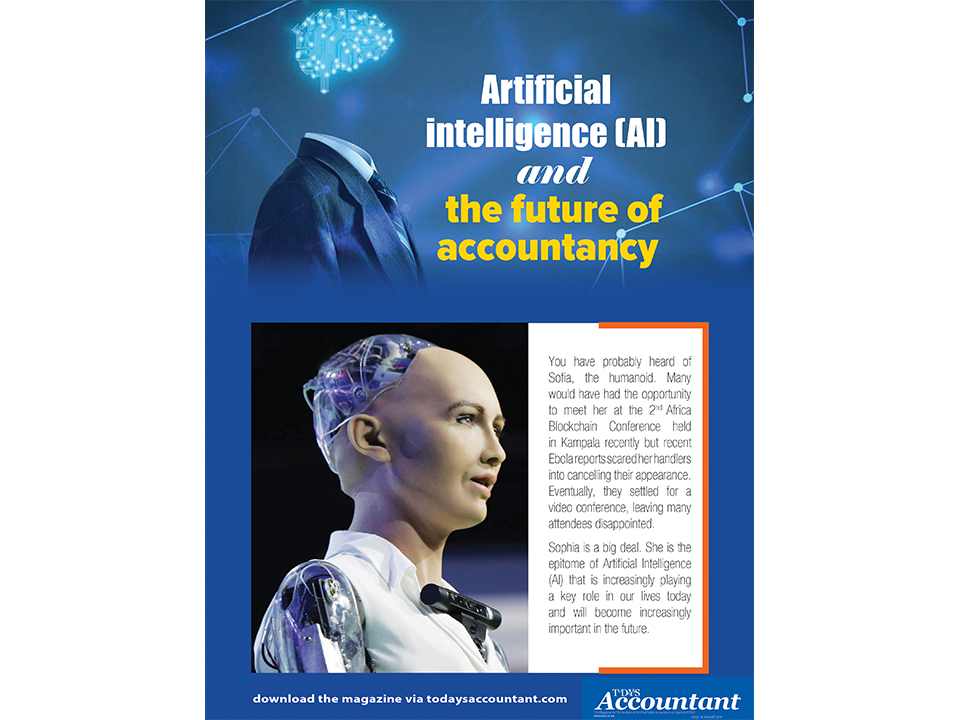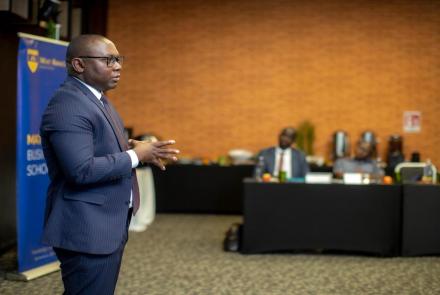By CPA Charles Ndyabahika
Senior Principal Auditor,
Bank of Uganda
You have probably heard of Sofia, the humanoid. Many would have had the opportunity to meet her at the 2nd Africa Blockchain Conference held in Kampala recently but recent Ebola reports scared her handlers into cancelling their appearance. Eventually, they settled for a video conference, leaving many attendees disappointed.
Sophia is a big deal. She is the epitome of Artificial Intelligence (AI) that is increasingly playing a key role in our lives today and will become increasingly important in the future.
In basic terms, AI technology is intelligent machines that are able to complete repetitive, routine tasks at a fraction of the time it takes humans and with greater accuracy. This now allows AI platforms to observe, analyze and self-learn data and processes to improve its performance and accuracy over time.
AI – Long-Term Vision
In the coming decades, intelligent systems will take over more and more decision-making tasks from humans. This being driven by the fact that decision making is becoming more and more Data based as opposed to subjectivity and emotion. While accountants have been using technology for many years to improve what they do and deliver more value to businesses, this is an opportunity to reimagine and radically improve the quality of business and investment decisions – which is the ultimate purpose of the accounting profession.
AI Technology
Artificial intelligence (AI) systems can be very powerful and are improving quickly. They provide outputs that can be extremely accurate, replacing and, in some cases, far superseding human efforts. However, they do not replicate human intelligence. We need to recognize the strengths and limits of this different form of intelligence, and build understanding of the best ways for humans and computers to work together.
AI and accountancy
Although AI techniques such as machine learning are not new, and the pace of change is fast, widespread adoption in business and accounting is still in early stages. In order to build a positive vision of the future, we need to develop a deep understanding of how AI can solve accounting and business problems, the practical challenges and the skills accountants need to work alongside intelligent systems.






